Vision
The efforts of the GOE Center consist of two main pillars. The first is to establish and expand the global educational program as one of the main features of the university. To this end, we collect, analyze, and disseminate best practices in international learning. The second is innovation and digitalization in the study and practice of international relations. Under this vision, capacity building, collaborative research with other universities, and active learning will be implemented. Capacity building will also include internship programs.
DESIGNING ONLINE EDUCATION WITHIN HITOTSUBASHI UNIVERSITY
DEVELOPING COIL (COLLABORATIVE ONLINE INTERNATIONAL LEARNING) PROGRAM
ACTIVE LEARNING
- New Approaches to International Peace and Security
- SIGMA (inter-university online program) on SDGs/ Digital Transformation
INNOVATION AND DIGITALIZATION IN THE STUDY AND PRACTICE OF INTERNATIONAL RELATIONS
CAPACITY-BUILDING
- Resume-writing workshops
- Internship (online/in-person) with international organizations
RESEARCH
- Inter-university/multi-year research project
- Data collection and analysis
- Comparative lessons learned from case studies
- Public symposiums
- Intensive training in open-source intelligence methodology
ACTIVE LEARNING
- New Approaches to International Peace and Security
- SIGMA (inter-university online program) on SDGs/ Digital Transformation
Staff
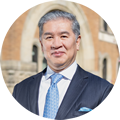
AKIYAMA Nobumasa |
Dr. Akiyama is the professor of Graduate School (faculty) of Law (Hitotsubashi Universty), the dean of School of International and Public Policy (Hitotsubashi Universty) and the director of Center for Global Online Education of Mori Arinori Institute for Higher Education and Global Mobility. |
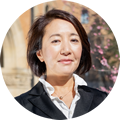
NAKAYA Sumie |
Dr. Nakaya joined Hitotsubashi University in March 2022. She is currently on special leave from the United Nations Department of Peace Operations, where she has since overseen peacekeeping efforts in Sudan and South Sudan, crisis management, strategic mission planning, and research involving the UN Charter and the work of the Security Council. Previously, she worked with the Conflict Prevention and Peace Forum of the Social Science Research Council, and the UN Development Fund for Women. She has published on post-war state building and gendered dimensions of peace negotiations in edited volumes (the UN University Press, the University of Alberta Press) and academic journals (Central Asian Survey, Global Governance), and taught in the Queens College, NY. She has a Ph.D. in Political Science at the City University of New York, Masters Degree in Law and Diplomacy from the Fletcher School in Boston, and Bachelors Degree from Sophia University in Tokyo. |
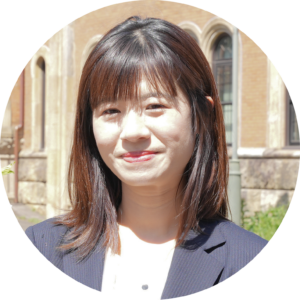
DOAN Linh Anh |
Dr. Doan Linh Anh is an assistant professor at Hitotsubashi University, specializing in International Relations Theory. She holds a Ph.D. in Law, and Master of International and Administrative Policy from Hitotsubashi University. Prior to her current position, she served as a specially appointed assistant professor (Junior Fellow) at the Graduate School of Law, Hitotsubashi University. Her recent publications include “Vietnam and Nuclear Security: a Case for Norm Isolation”, International Affairs, Vol. 101, pp. 97-115, January 2025., “Is Nuclear Security an International Norm? A Constructivist Account of How Nuclear Security Shapes State Behavior”, International Journal of Nuclear Security, Vol. 9, No.1, Article 6, February 2025. |
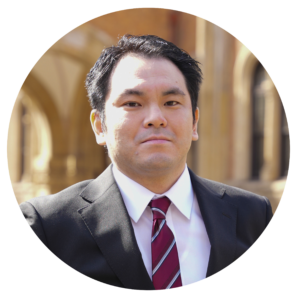
FUKAZAWA Kazuhiro |
Dr. Kazuhiro Fukazawa is an assistant professor at Hitotsubashi University. His major is international political economy and his current research topic is policy-making processes of labor provision in free trade agreements. He obtained a Ph.D. in Law and a Master of Laws from Hitotsubashi University and a Bachelor of Economics from Yokohama National University. Before assuming his current position, he served as a specially appointed assistant professor (junior fellow) at the Graduate School of Law, Hitotsubashi University. His recent publications are “How and Why Labor Provisions Vary in Free Trade Agreements: A Comparative Case Study of the U.S. and EU,” Economia 72, no. 2, March 2022, and “Globalization and Reconstruction of Social Policy: A Japanese Case Study,” The Hitotsubahi Journal of Law and International Studies, 18, no. 2, July 2019. |
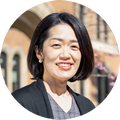
TANAKA-SAKABE Yukako |
Dr. Yukako Tanaka-Sakabe is an assistant professor at Kyoritsu Women’s University and a visiting researcher at Hitotsubashi University, Japan. Her research focuses on peace and security especially in concerning the situation of weak states/conflict-affected areas. She looks for institutions, causes of conflict, conflict resolution, democratization, state-building, peacebuilding in the local context, international peace operation, strategies of supply side for international cooperation. She has done fieldwork in Southeast Asia and Africa. While enjoying interacting with students in classes, she participates in projects conducted by research institutes and think tanks. She has previously worked at the Japanese Embassy in Timor-Leste, International Peace Cooperation Headquarters under Japanese Cabinet Office, and the United Nations Assistance Mission to Afghanistan. She is the author of Why Democratization Causes Violence? Conditions of Post-conflict Peace (Keiso Shobo, 2019, monograph) and the co-author of The Theory and Practice of International Peace Operations: Challenges in South Sudan (Horitsu Bunka Sha, 2020) (in Japanese). She received her Ph.D. (in Political Science) from Waseda University and Master in Public Administration from Cornell University. |
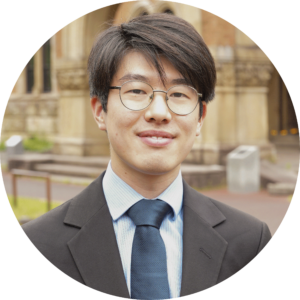 ONUKI Jun Transnational Sociology / Research assistant, Graduate School of Social Sciences – doctoral degree studentread more |
Jun Onuki is a doctoral degree student at the Graduate School of Social Sciences, Hitotsubashi University, Japan. His research focuses on transnational sociology, immigrants integration, and diaspora policies. He has graduated in Geography at the Faculty of Philosophy, Languages and Literature, and Human Sciences, University of São Paulo; and in Geography Education at the Faculty of Education, at the same university. He has worked as an interviewer for the project ‘Investigation on the Japanese-Brazilian community in multicultural Brazil’, organized by Center for Japanese-Brazilian Studies, São Paulo. Since 2021, he is an exchange student of JICA ‘Scholarship for Nikkei Communities in Latin America and the Caribbean: Program for Developing Leaders in Nikkei Communities’, having studied at Waseda University as a research student, and being currently at Hitotsubashi University Graduate School of Social Sciences. 2025.04.29th |


